Home > Dom Miguel I
Dom Miguel I
October, 1802 (Lisbon, Portugal) – November, 1866 (Karlsruhe, Germany)
Spacious and boldly decorated in shades of blue, this room inspired by King Miguel I is the ideal place to recharge your batteries after a day visiting Lisbon. The private balcony invites you to watch the sunset over a breathtaking view of the city.
The Master With View – D. Miguel I offers elegant comfort for up to two guests. Decorated in fresh blue and white tones, this spacious room features a Queen-size bed, a work desk, and a large statement chandelier beneath a beautifully detailed ceiling. The private balcony offers relaxing views over the hotel, creating a serene and inviting atmosphere.
The bathroom continues the harmonious colour palette, offering generous space, a practical curtain division for the toilet, and refined details throughout. Amenities include a Delta coffee machine, minibar, TV, free Wi-Fi, air conditioning, hairdryer, and safe. Complimentary coffee and water are provided throughout your stay for a complete and comfortable experience.
See our other rooms in the Master with a View category
- Up to 2 People
- 28 m2
- Queen Size Bed
- Private Balcony
- City View
- Coffee Machine
- Mini Bar
- Television
- Free WiFi
- Air Conditioning
- Hairdryer
- Safe
- Offer of Delta Coffee and Water throughout your Stay
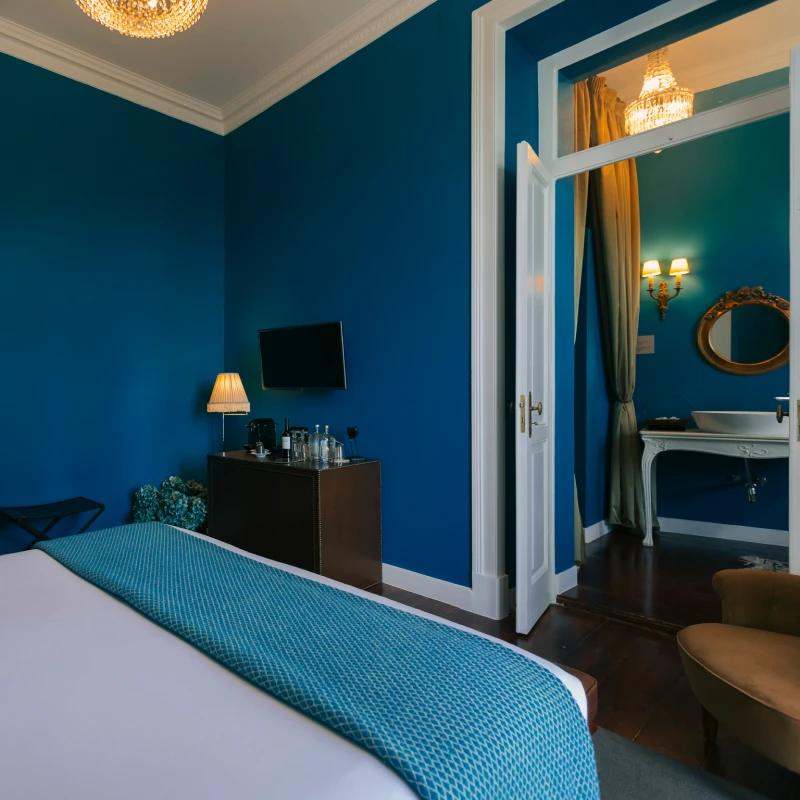
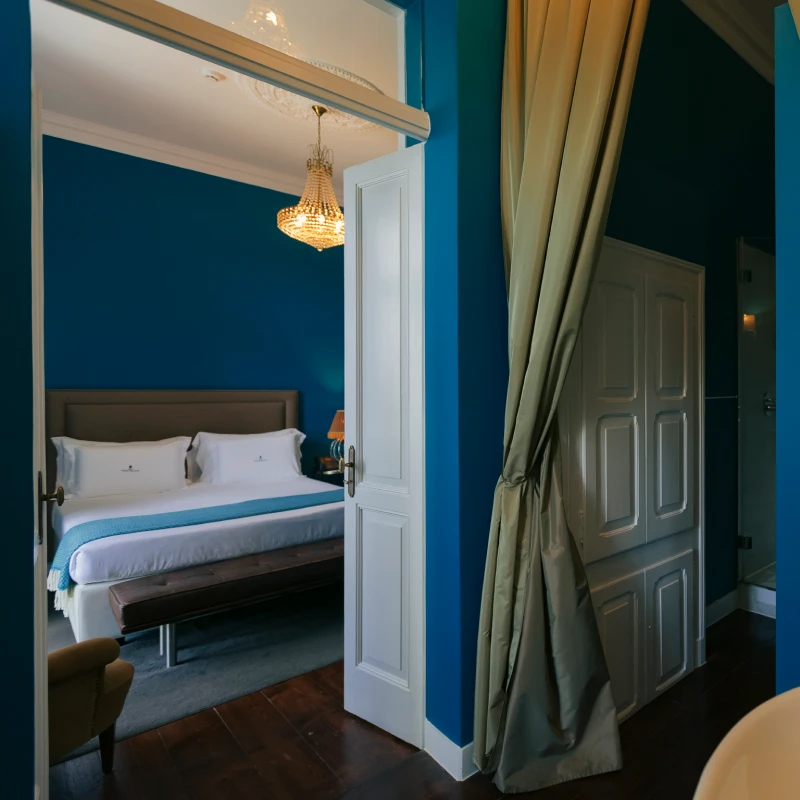
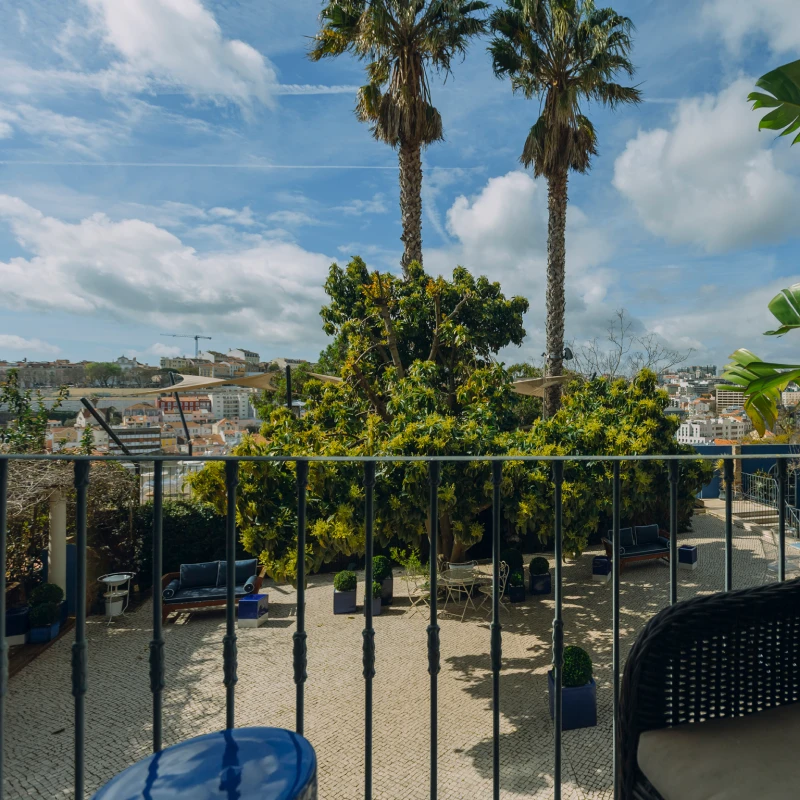
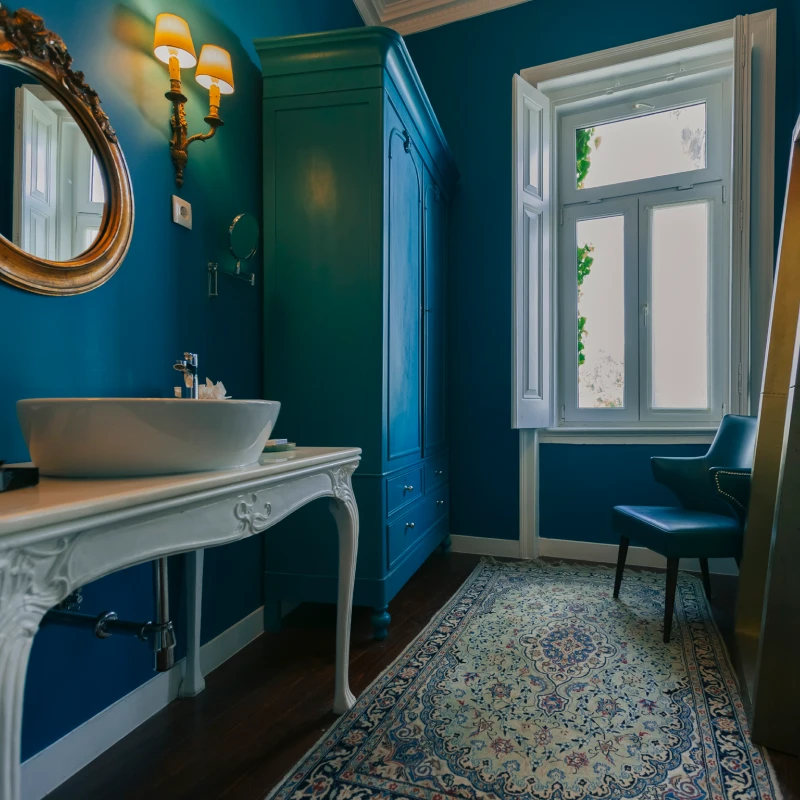
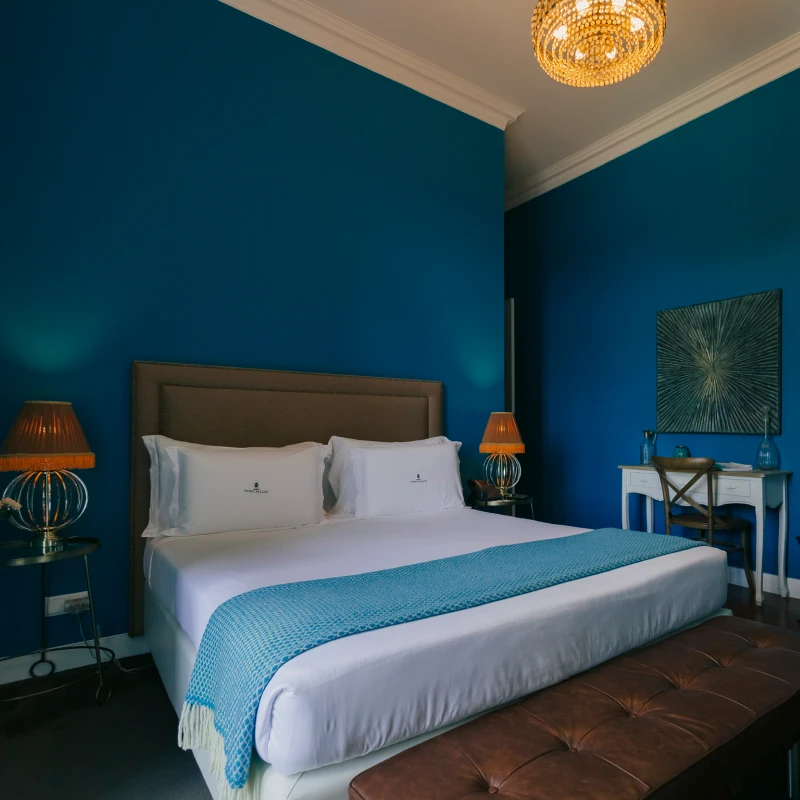




In Honor of...
Dom Miguel I
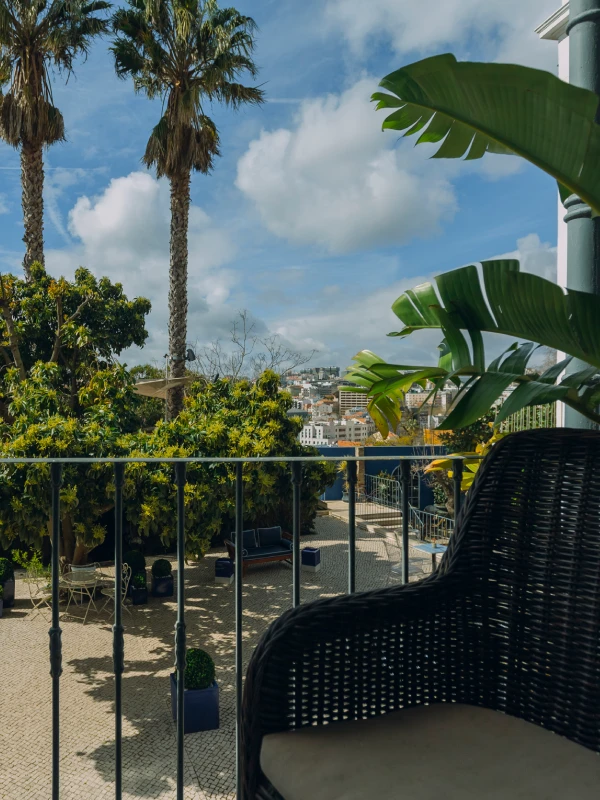
Dom Miguel I, known as the Absolute King, was one of the most controversial figures in Portuguese history. Son of King João VI and Queen Carlota Joaquina, he played a central role in the 19th-century political turmoil between absolutists and liberals.
Initially exiled for leading revolts against constitutional rule, Dom Miguel returned to Portugal in 1828 and proclaimed himself king, abolishing the liberal constitution and establishing an absolute monarchy. His reign was marked by repression and civil unrest, triggering the Liberal Wars — a brutal conflict between supporters of Miguel and those of his niece and rival, Dona Maria II.
After six years of war, Dom Miguel was defeated in 1834 and permanently exiled from Portugal, stripped of his titles and barred from returning. He spent the rest of his life in Central Europe, where he married and founded the Miguelist branch of the Braganza dynasty, which still exists today.
Though remembered by some as a defender of tradition and faith, his legacy remains deeply polarizing. Dom Miguel’s reign embodies a nation torn between past and progress, monarchy and modernity.









